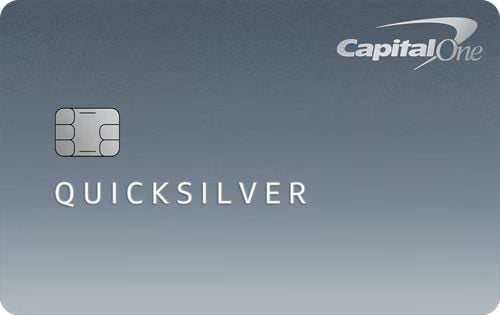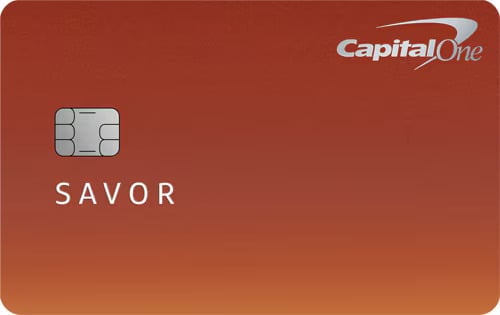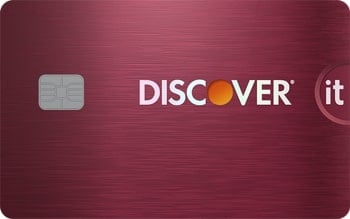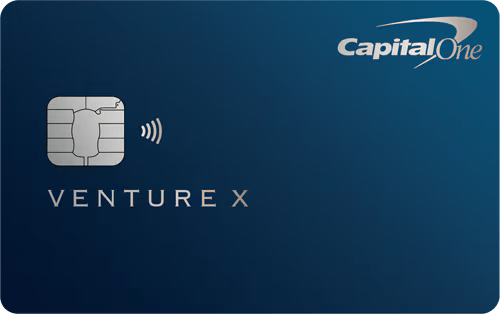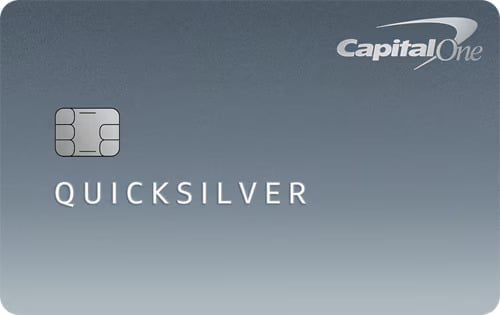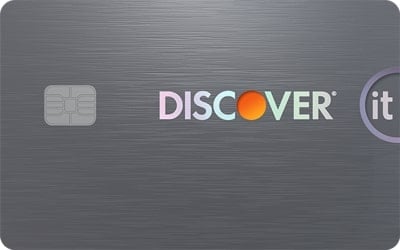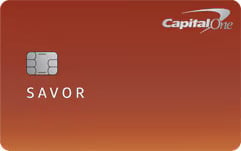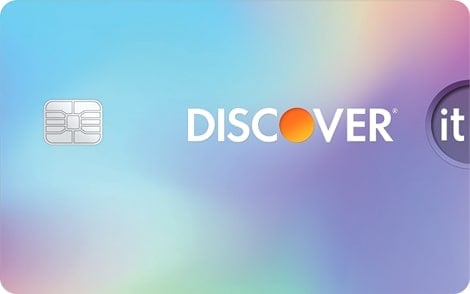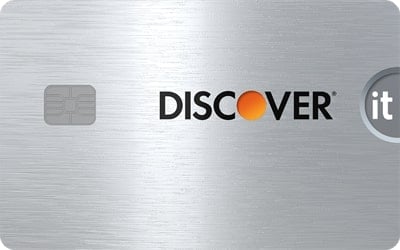Discover vs. Capital One Credit Cards
Both issuers offer a wide variety of options, but some cards stand out more.

Many or all of the products on this page are from partners who compensate us when you click to or take an action on their website, but this does not influence our evaluations or ratings. Our opinions are our own.
Capital One and Discover have suites of credit cards serving different purposes — cash back and travel rewards, plus cards for those who are newer to credit. Both issuers offer cards that earn high ranks in customer satisfaction, according to J.D. Power.
But when it comes to their rewards, the two issuers take different paths. Discover’s rewards programs are simple. Most of its cards earn cash back, and its one travel card earns miles worth 1 cent each when redeemed. Discover’s typical welcome offer is a match of whatever rewards you earned in the first year you had the card.
Capital One also issues a number of cash-back cards, but its travel cards’ rewards programs are a bit more elaborate and potentially provide more value per mile. The Capital One cards that offer welcome offer typically require you to reach a spending minimum within several months to earn those bonuses.
If you’re traveling internationally, Capital One cards might be accepted more often because they run on the Visa and Mastercard payment networks. Discover is both an issuer and a payment network. Its cards are widely accepted within the U.S. but aren’t as widely accepted elsewhere.
Here’s how Capital One and Discover cards compare.
Cash-back cards
Capital One
Capital One’s cash-back cards include the flat-rate Capital One Quicksilver Cash Rewards Credit Card, which earns 1.5% cash back on all purchases and 5% cash back on hotels, car rentals and vacation rentals booked through Capital One Travel. There are a few versions of this card that you could qualify for based on your credit history. With excellent credit (FICO scores of 720 or higher), you could earn a sign-up bonus, avoid an annual fee and qualify for a 0% APR promotional period for balance transfers.
Meanwhile, those with fair credit (typically, scores from 630 to 689) can still earn 1.5% cash back, but none of the rest of those perks. In addition to an annual fee, this version of the card lacks a sign-up bonus and no-interest offer.
The Capital One Savor Cash Rewards Credit Card has a $0 annual fee and earns higher cash-back rates for certain spending:
- 5% cash back on hotels, car rentals and vacation rentals booked through Capital One Travel.
- 3% cash back on dining, entertainment and streaming services.
- 3% cash back on purchases at grocery stores.
- 1% cash back on everything else.
Earn a one-time $200 cash bonus once you spend $500 on purchases within the first 3 months from account opening.
For this card, “entertainment” is a broad category that includes purchases such as movie, professional sporting event and theater tickets, as well as admission to tourist attractions, amusement parks, aquariums, zoos, bowling alleys and more.
Discover
Discover’s cash-back cards earn more in specific categories. The Discover it® Cash Back earns:
- 5% cash back on quarterly rotating bonus categories you activate, on up to $1,500 in spending.
- 1% cash back on everything else.
The Discover it® Chrome features lower rates but is simpler to manage:
- 2% cash back at gas stations and restaurants on up to $1,000 in combined purchases each quarter.
- 1% cash back on all other purchases.
Both of these cards offer Discover’s cash-back match: INTRO OFFER: Unlimited Cashback Match for all new cardmembers. Discover will automatically match all the cash back you’ve earned at the end of your first year! There’s no minimum spending or maximum rewards. You could turn $150 cash back into $300.
» MORE: NerdWallet’s best Discover cards
The winner: It’s a toss-up
As far as cash-back cards go, both Capital One and Discover have compelling offerings. It just comes down to where you spend the most and how much effort you’re willing to put in to manage your cards.
Travel cards
Capital One
Capital One’s Venture family of cards include, in order of most to least fancy, the Capital One Venture X Rewards Credit Card, the Capital One Venture Rewards Credit Card and the Capital One VentureOne Rewards Credit Card - Miles Boost. Each of these cards earns a flat rewards rate on most purchases, plus a sign-up bonus for new card holders.
The Capital One VentureOne Rewards Credit Card - Miles Boost has a $0 annual fee and has the least to offer in terms of travel perks. The middle-of-the road Capital One Venture Rewards Credit Card has a $95 annual fee and includes a statement credit to cover the cost of TSA PreCheck or Global Entry.
The high-end Capital One Venture X Rewards Credit Card includes that statement credit and grants access to participating airport lounges (both Capital One’s own lounges and those in the Priority Pass network), an annual travel credit and annual anniversary bonus. You’ll need to fork over a $395 annual fee for all those extras.
You can redeem miles to cover the cost of a recent travel purchase, use them to book travel through Capital One Travel, transfer them to a loved one who also carries a Venture card, or transfer them to Capital One’s airline or hotel partners.
Full list of Capital One transfer partners
Airlines
- Aeromexico (1:1 ratio).
- Air Canada (1:1 ratio).
- Air France-KLM (1:1 ratio).
- Avianca (1:1 ratio).
- British Airways (1:1 ratio).
- Cathay Pacific (1:1 ratio).
- Emirates (1:1 ratio).
- Etihad (1:1 ratio).
- EVA (2:1.5 ratio).
- Finnair (1:1 ratio).
- Japan Airlines (2:1.5 ratio).
- JetBlue (5:3 ratio).
- Qantas (1:1 ratio).
- Qatar Airways (1:1 ratio).
- Singapore Airlines (1:1 ratio).
- TAP Air Portugal (1:1 ratio).
- Turkish Airlines (1:1 ratio).
- Virgin Red (1:1 ratio).
Hotels
- Accor (2:1 ratio).
- Choice Privileges Hotels (1:1 ratio).
- I Prefer Hotel Rewards (1:2 ratio).
- Wyndham Rewards (1:1 ratio).
Discover
Discover’s travel card, the $0-annual-fee Discover it® Miles, earns 1.5 miles per $1 on all purchases. You can redeem miles at a value of 1 cent each for cash back or a statement credit to cover the cost of travel purchases.
The winner: Capital One
Not only can you get premium travel perks with some of Capital One’s Venture cards, but miles can sometimes be worth more than 1 cent each if you transfer them to a travel partner. (Note that with some transfer partners, your points could be worth less than 1 cent each.)
The Discover it® Miles is a cash-back card in a travel card’s clothing, and there are other no-annual-fee cash-back cards that earn more than 1.5% on all purchases. If you value simplicity and want to apply your earned rewards to travel costs, you can also get a more rewarding cash-back card and just earmark your redemptions to cover a travel purchase.
Credit-building cards
Capital One
The Capital One Platinum Secured Credit Card, with a $0 annual fee, offers a $200 credit limit with an initial security deposit of $49, $99 or $200. If you’re eligible for the lowest deposit, that can take the sting out of the upfront cost of getting a secured credit card. In as little as six months, Capital One will automatically consider you for a higher credit limit. However, the card doesn’t earn any rewards.
If a $200 deposit isn’t a blocker, the Capital One Quicksilver Secured Cash Rewards Credit Card earns 1.5% cash back on all purchases and has a $0 annual fee. It also offers 5% cash back on hotels, car rentals and vacation rentals booked through Capital One Travel. You can be considered for a credit limit increase in as little as six months, and you may eventually be eligible to upgrade to one of the unsecured Quicksilver cards and get your deposit back.
Discover
The $0-annual-fee Discover it® Secured Credit Card requires a $200 security deposit, but its other features make it a standout option.
First, it offers a clear path to graduating to an unsecured credit card. At seven months, Discover will review your account monthly to determine whether you’re eligible for such an upgrade (once that happens, you’ll get your security deposit back).
Second, and this is big, it earns cash-back rewards, which is rare for a secured card. Earn 2% cash back at gas stations and restaurants on up to $1,000 in combined quarterly spending, and 1% back on everything else. Plus, there’s a welcome offer: INTRO OFFER: Unlimited Cashback Match for all new cardmembers—only from Discover. Discover will automatically match all the cash back you’ve earned at the end of your first year! There’s no minimum spending or maximum rewards.
The winner: Discover, by a nose
Both the Discover it® Secured Credit Card and Capital One Quicksilver Secured Cash Rewards Credit Card are solid options as you work toward qualifying for an unsecured card. But the Discover it® Secured Credit Card comes out ahead if gas and dining out are big parts of your budget, especially since the card has a welcome bonus.
If you prefer the simplicity of a flat cash-back rate, the Capital One Quicksilver Secured Cash Rewards Credit Card comes out ahead, though it lacks any sort of sign-up bonus.
Student cards
Capital One
Students can choose two versions of Capital One cards that are designed just for them.
The Capital One Savor Student Cash Rewards Credit Card has a $0 annual fee and earns:
- 5% cash back on hotels, car rentals and vacation rentals booked through Capital One Travel.
- 3% cash back on dining, entertainment, streaming services and purchases at grocery stores.
- 1% on all other purchases.
There’s also a sign-up bonus: Earn $50 when you spend $100 in the first three months.
The $0-annual-fee Capital One Quicksilver Student Cash Rewards Credit Card earns 1.5% cash back on all purchases and 5% cash back on hotels, car rentals and vacation rentals booked through Capital One Travel. Earn $50 when you spend $100 in the first three months.
Note that both of these cards require fair credit to qualify, so they aren’t options for anyone who has yet to establish their credit history.
Discover
The Discover it® Student Cash Back, with a $0 annual fee, earns:
- 5% cash back on quarterly rotating spending categories you activate (on up to $1,500 in spending, then 1% back).
- 1% cash back on all other purchases.
The Discover it® Student Chrome, which also has a $0 annual fee, earns:
- 2% cash back at gas stations and restaurants on up to $1,000 in combined purchases each quarter.
- 1% cash back on all other purchases.
Both cards come with the same welcome bonus: INTRO OFFER: Unlimited Cashback Match for all new cardmembers – only from Discover. Discover will automatically match all the cash back you’ve earned at the end of your first year! There’s no minimum spending or maximum rewards. You could turn $50 cash back into $100. Or turn $100 cash back into $200.
A major feature of the Discover student cards is that no credit score is required to apply for them.
The winner: It’s a toss-up
Both Capital One and Discover student cards offer decent cash-back rewards and welcome offers with no annual fees. If you’re newer to establishing credit, you may be more likely to qualify for the Discover cards. But if you have fair credit, your options open up a bit more.
Also note that if you plan on studying abroad, you may experience limited acceptance with a Discover credit card, depending on what country you’ll be in.
Article sources
NerdWallet writers are subject matter authorities who use primary,
trustworthy sources to inform their work, including peer-reviewed
studies, government websites, academic research and interviews with
industry experts. All content is fact-checked for accuracy, timeliness
and relevance. You can learn more about NerdWallet's high
standards for journalism by reading our
editorial guidelines.
Limited Time Only: Earn $1,000 Toward Travel!
Capital One Venture Rewards Credit Card 
Travel

For a limited time, the
Capital One Venture Rewards Credit Card is offering new cardholders an especially rich bonus: Enjoy $250 to use on Capital One Travel in your first cardholder year, plus earn 75,000 bonus miles once you spend $4,000 on purchases within the first 3 months from account opening - that’s equal to $1,000 in travel!
Find the right credit card for you.
Whether you want to pay less interest or earn more rewards, the right card's out there. Just answer a few questions and we'll narrow the search for you.


